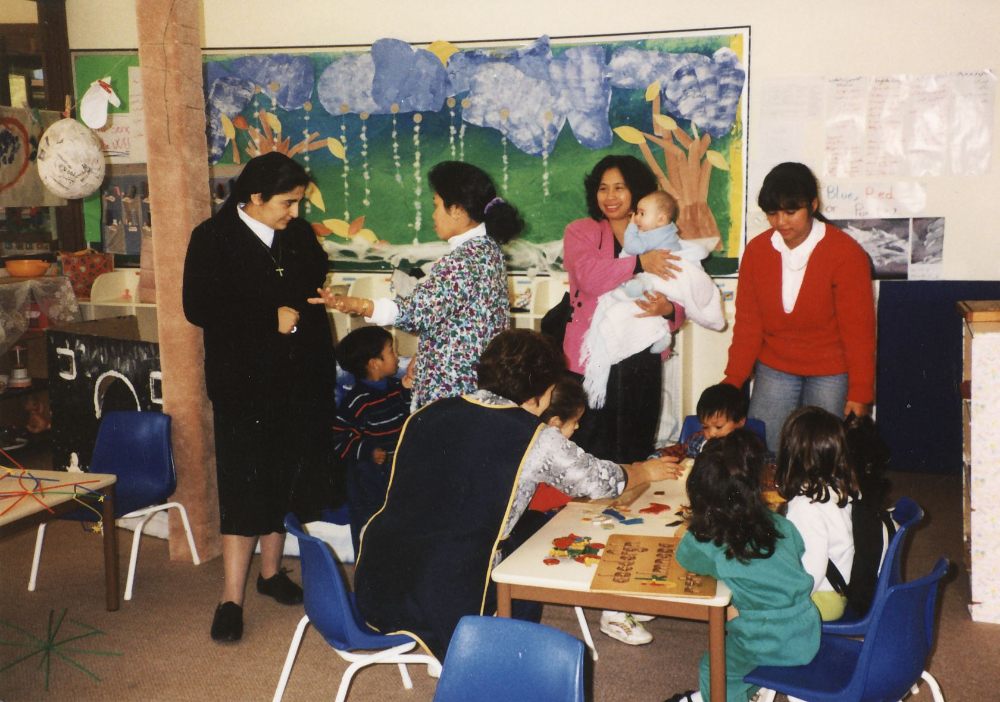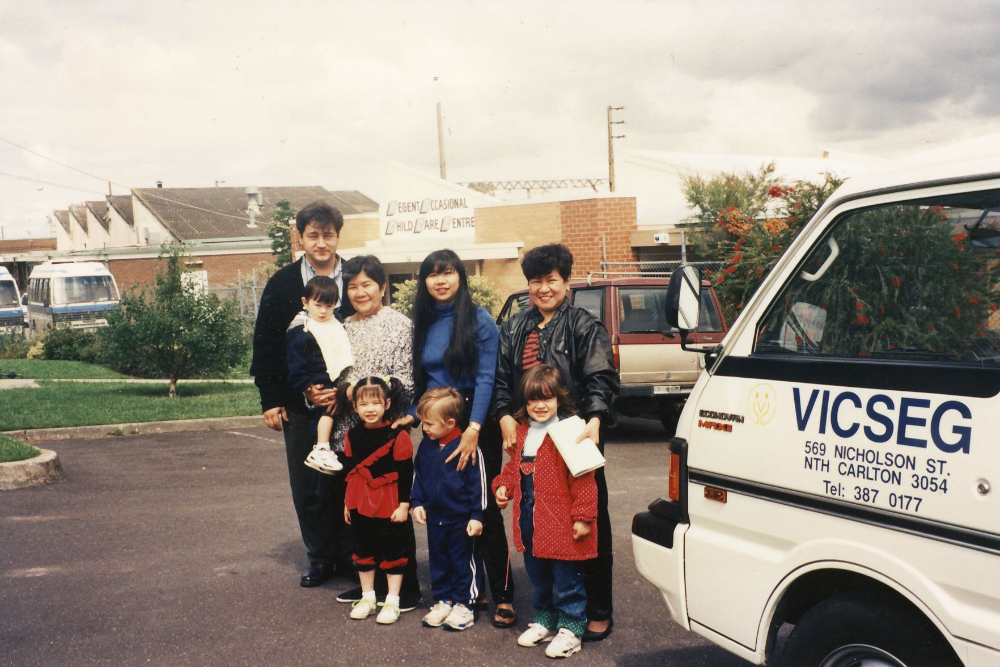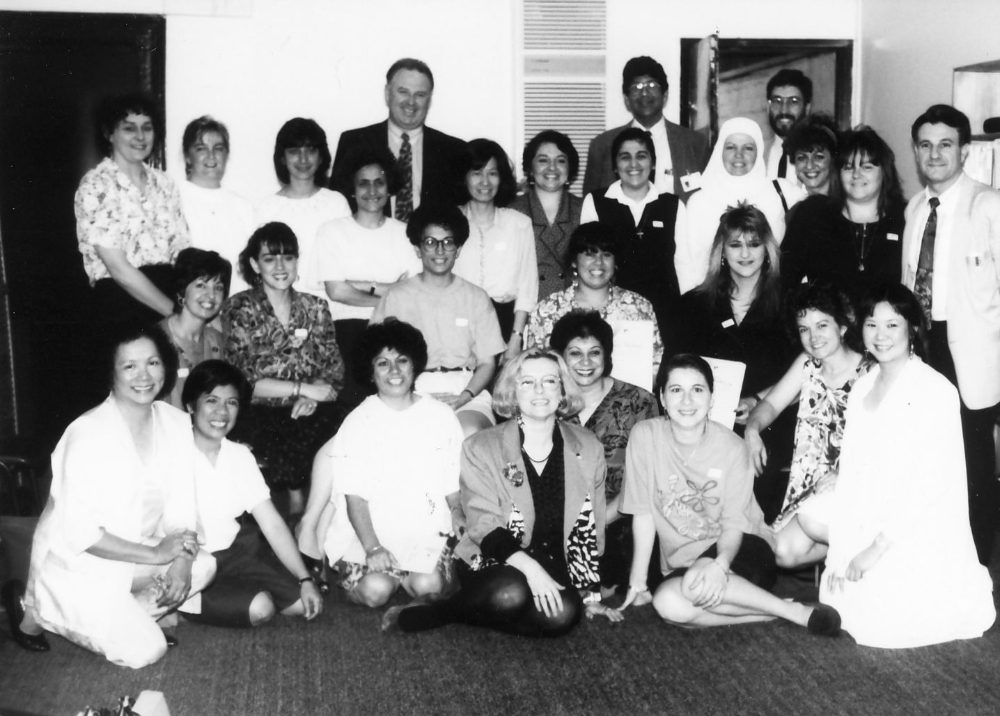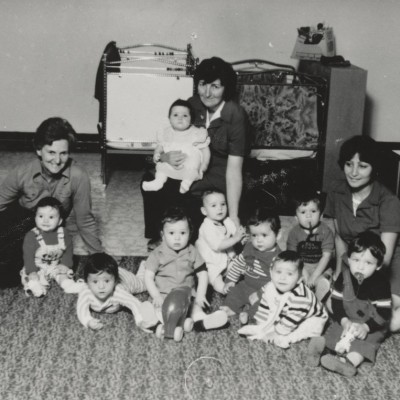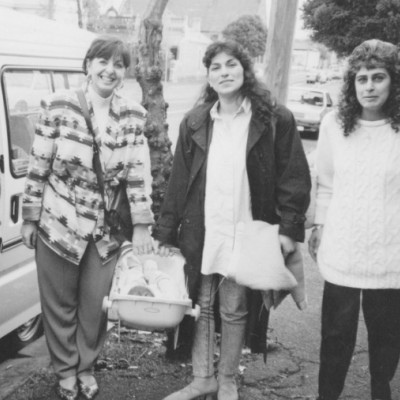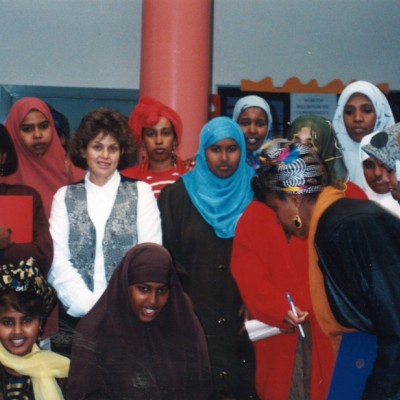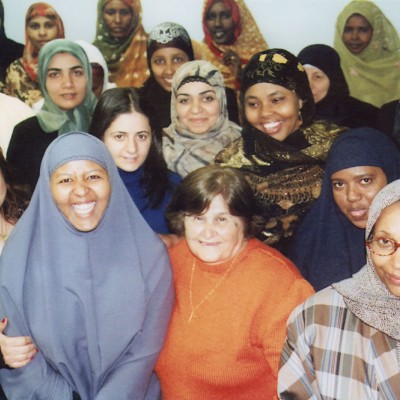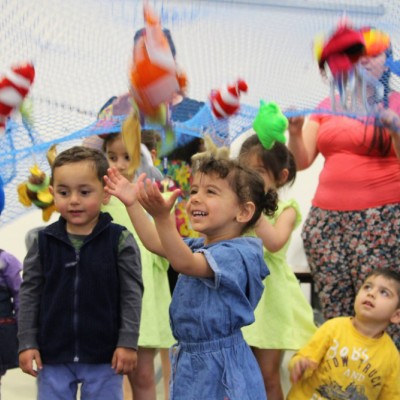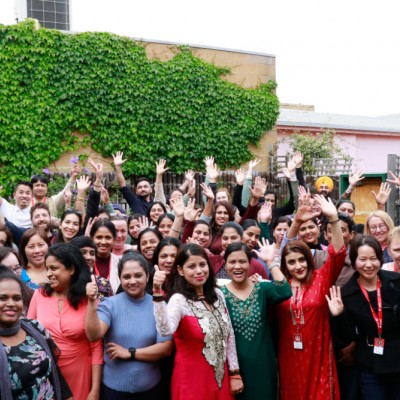Bridging the gap
From its inception VICSEG was a unique organisation that provided crucial support to new migrant communities. However, its activities were often under-appreciated and under-funded. In the early days of VICSEG, staff worked hard at creating awareness in government, childcare agencies and community organisations about the needs of migrant communities and the importance of facilitating the access of these communities to children’s services that were sensitive and respectful of their cultural differences.
VICSEG faced a number of different challenges in its approach to bridge the gap between migrant communities, childcare agencies and community organisations. Staff developed relationships with a variety of different organisations, ethnic communities and government departments working across the migrant and children’s services sectors. This meant that the VICSEG team needed not only to focus on their work with ethnic communities, but in many cases also become skilled negotiators, social workers, peacekeepers and interpreters. Juggling government expectations along with community needs was often a difficult task and one that was made even harder by the constant threat of funding cuts. It was an almost unceasing battle between the conflicting agendas of migrant groups and government.
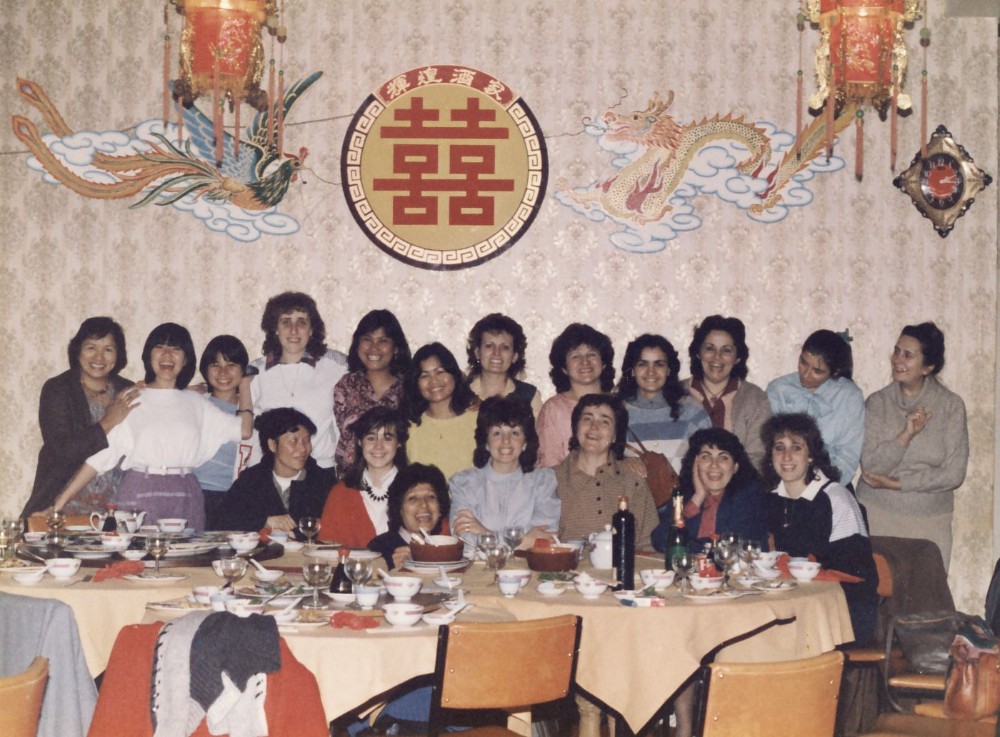
VICSEG staff with students from an early training course, funded under the Commonwealth Employment Program, 1984.
It was a delicate business trying to get communities to understand that what they needed was not necessarily what the government was prepared to fund. Communities, together with VICSEG, needed to work within these limitations to receive funding. For the VICSEG team, compromise was the only option. It was quickly understood that government funding was tied to specific guidelines, with particular rules and regulations to be followed.
We wanted to build centres that were relevant to the culture and background of the communities, but you can't. There was a funding model and no matter what you are, you needed to fit into that model, so we were actually putting round centres into square holes.
Gabrielle Fakhri, Ethnic Children’s Services Worker, VICSEG
In 1982, after just 12 months of operation, VICSEG faced its first major hurdle when the Minister for Immigration and Ethnic Services refused to continue funding the organisation beyond 31 August 1982 ‘subject to review’. With the possibility of losing government funding, VICSEG’s very existence was in jeopardy barely a year after it had begun.
An extraordinary meeting was called and the organisation decided on a course of action. Letters would be written to the appropriate Ministers, a press statement would be released and support would be sought from other ethnic community organisations. Janet Elefsiniotis, Chairperson of the VICSEG Executive Committee, wrote to any person or organisation that had an interest in seeing VICSEG continue to function, eliciting support. After an extensive campaign, more than 20 organisations wrote letters to the Minister for Social Security and Minister for Immigration and Ethnic Affairs, expressing their dismay at the decision to discontinue funding for the organisation. The letters described the ways in which each group had received much-needed support from VICSEG over the previous 18 months.
We are only just starting to realise the enormity of the problems migrant families face in relation to children’s services. We need 20 or 30 VICSEGs, not only one.
Project Officer of Multicultural Information for Communities and Kids, 1982
The result of this outpouring of support was an increase in the level of recurrent funding to VICSEG, together with a promise that the level of support shown for the co-operative would be reconsidered following the departmental review in August 1982.
The election of the Hawke Labor government in 1983 was an important milestone for VICSEG. The new government approved funding for three new childcare centres in Melbourne specifically aimed at the Spanish-speaking, Lebanese and Yugoslav communities. Government funding of VICSEG was also increased and made more secure. Moreover, VICSEG was able to continue its training initiatives through the Commonwealth Employment Program (CEP).
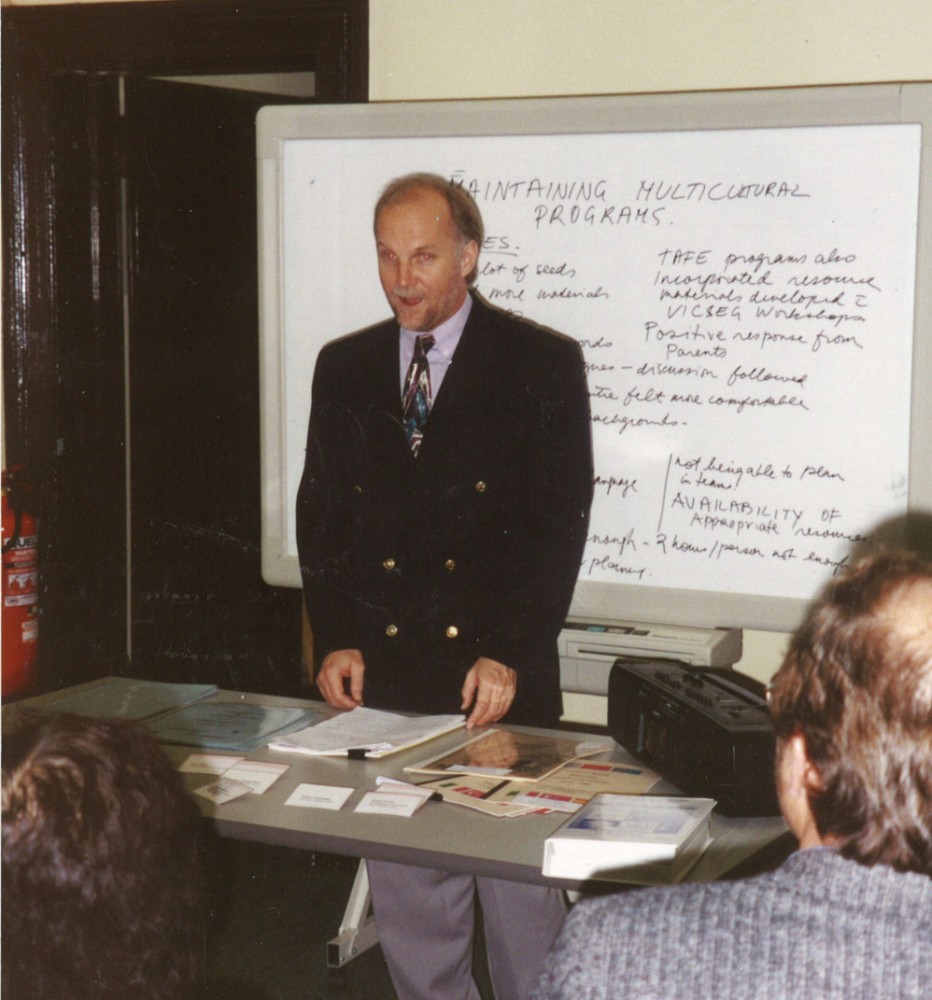
Peter Quick, Director of Family and Children’s Services at the Victorian State Office of FACSIA, addressing a meeting at VICSEG in the early 1990s.
However, around this time the federal government was making changes within the Immigration Department including establishing an Office of Multicultural Affairs as part of the overarching policy on multiculturalism. This shift also meant future funding was moving away from individual ethnic groups and towards multicultural mainstreaming of services.
After a while government policy changed to thinking we don't want to do that anymore, we don't want to have every ethnic group having its own little childcare centre. What we want is for ethnic communities to be able to access any service ... The focus wasn't anymore 'oh, let's see if we can get you a childcare centre', it was 'there's a childcare centre in Flemington Road and we will assist you to get in there'. So VICSEG's role was to try and ensure that people could get into services.
Peter Quick, former employee Department of Community Services Victoria
Peter Quick had become a valuable government resource for the organisation, working in the Department of Community Services Victoria. As government policy shifted from an ethno-specific to a more mainstreaming approach, Peter remembers discussing with VICSEG how it needed to make the change to fit in with what the government wanted.
Despite this shift towards multiculturalism and mainstreaming in the children’s services sector, VICSEG remained focused on its efforts to help ethnic communities set up their own childcare centres. Within this first decade of operation, VICSEG staff assisted in the establishment of several ethno-specific childcare centres, including a centre for Yugoslav children in the Thomastown-Lalor area, a centre for Lebanese children in Coburg and a centre in Ascot Vale for Spanish-speaking children. But with the shift in government policy, establishing ethnic specific childcare centres was only going to become harder.
Resources:
Interview with Gabrielle Fakhri, 2 June 2011.
Interview with Janet Elefsiniotis, 3 June 2011.
Interview with Peter Quick, 3 June 2011.
The Office of Children’s Services Review of VICSEG, December 1989.
VICSEG Annual Reports, 1980-1981, 1982.
